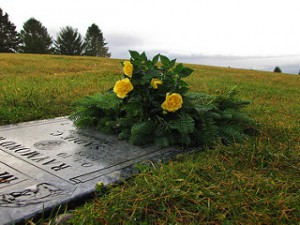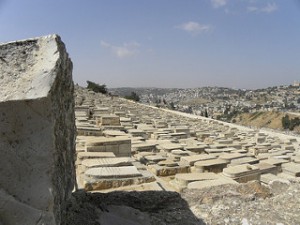

Families who are dealing with the impending death of a loved one or, even more unfortunate, an unexpected death, are faced with an end-of-life process that is largely unfamiliar and uncharted territory. That goes as well for the religious traditions connected with funerals, burial and cremation. For many families who need to plan a funeral, the specifics connected with their faith or their loved one’s faith and funeral traditions are often unfamiliar.
The religious traditions and rituals connected with a funeral can add significant comfort at this most difficult time. The words of comfort delivered during a funeral service, and the support and counsel provided by ministers and church staff can be a very significant help in moving them from grief to remembrance.
Families “don’t want to get it wrong” when it comes to the particular religious funeral traditions observed by their parents or other loved ones who have died. The subject of religious traditions and funerals can be complex and confusing, so contacting a minister in your specific faith will provide the most complete information concerning the traditions observed in your community.
The information provided in this section is intended to serve as a general overview to specific traditions, and highlight issues that may need to be dealt with in advance of the service itself, (for example, specific religions that require certain caskets, or treatment of cremated remains).
This section will be expanded to address more religious traditions in the near future.
 Protestant Denominations: BaptistA major purpose of the Baptist funeral is to offer hope and comfort to the family and friends, and to remember the life of the departed. This hope is based on the belief in the resurrection of the dead. Because of its goal to comfort the family, condolences, visitation services, and eulogies play an important
Protestant Denominations: BaptistA major purpose of the Baptist funeral is to offer hope and comfort to the family and friends, and to remember the life of the departed. This hope is based on the belief in the resurrection of the dead. Because of its goal to comfort the family, condolences, visitation services, and eulogies play an important Protestant Denominations: EpiscopalianIn the Episcopal Church, a funeral is a celebration of resurrection. This is beautifully symbolized by the fact that instead of dark colors, the color for altar hangings and clergy vestments is always white for funerals because the liturgy for the dead is an Easter liturgy. The message for Episcopalians is clear: because Jesus was
Protestant Denominations: EpiscopalianIn the Episcopal Church, a funeral is a celebration of resurrection. This is beautifully symbolized by the fact that instead of dark colors, the color for altar hangings and clergy vestments is always white for funerals because the liturgy for the dead is an Easter liturgy. The message for Episcopalians is clear: because Jesus was Catholic Funeral ConsiderationsThe purpose of Roman Catholic funeral services is to pray for the deceased and entrust them to God’s care, to honor the body, and to comfort the family and friends. Roman Catholic funerals are guided by a set of traditions that have comforted mourners for thousands of years. Since some of these traditions have changed
Catholic Funeral ConsiderationsThe purpose of Roman Catholic funeral services is to pray for the deceased and entrust them to God’s care, to honor the body, and to comfort the family and friends. Roman Catholic funerals are guided by a set of traditions that have comforted mourners for thousands of years. Since some of these traditions have changed Jewish Funeral RitualsJewish funerals are guided by a beautiful and meaningful set of rules and traditions that have helped families move from “grieving to remembrance” for thousands of years. Since these traditions can vary by community or denomination (Reform and Orthodox traditions will be somewhat different, for example), seeking guidance from your local rabbi will ensure that
Jewish Funeral RitualsJewish funerals are guided by a beautiful and meaningful set of rules and traditions that have helped families move from “grieving to remembrance” for thousands of years. Since these traditions can vary by community or denomination (Reform and Orthodox traditions will be somewhat different, for example), seeking guidance from your local rabbi will ensure that